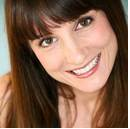The Sugar Addict’s Total Recovery Program Book Review
I bought The Sugar Addict’s Total Recovery Program by Kathleen DesMaisons a few years ago when I was feeling really desperate. While I don’t agree with everything in the book it is a fanatastic resource for those who feel like their dependency on sugar may be related to their depression or getting in the way of reaching goals. What I enjoyed most about the book was it made me feel like a little less of a freak. It reassured me that there were other people out there who felt they might have a mental breakdown if they didn’t get candy in the check out line at the grocery.
Ms. DesMaisons goes very in depth into her research regarding the chemistry of sugar addictions. In her experience she says most mild to moderate forms of depression are usually related to diet. This has been my own personal experience. Like I’ve said before, I have been able to greatly reduce my depression symptoms with dietary changes and exercise. She also talks about sugar addiction being caused by faulty brain chemistry regarding serotonin and beta endorphins. I won’t go into details but it’s fascinating and hopeful if you struggle with an constant need to down sugar or carbs. Here are her 7 steps to a sugar free life.
1. Eat breakfast with protein every day.
2. Journal what you eat and how you feel.
3. Eat Three Meals a day with Protein
4. Eat a Potato Before Bed
5. Shift from White Food to Brown Foods
6. Taking the Sugars Out.
7. Staying with the Program Over Time.
Her recommedation about eating protein with every meal and having breakfast everyday is spot on. I’ve found that these two suggestions are essential in being able to resist sugar and to lose weight. I disasgree with the only 3 meals a day suggestion. Her reason is that sugar sensitive people have a hard time saying no and snacks encourage grazing throughout the day. Personally I have found that if I skip meal 2 (mid-morning “snack”) and meal 4 (mid-afternoon “snack”) then I am much more likely to binge and eat waaaaaay more than I need. Not only that but I’m more likely to choose the wrong foods, i.e. a package of white tortillas. She says if you are engaging in “major athletic activity” then snacks are okay. I guess my workouts could be considered “major athletic activity”!
The potato before bed seems a little wacky to me. I tried it and didn’t notice much or any difference. But her science behind it is intriguing and convincing when you read it. And, despite being skeptical, I definitely think it’s worth a try. Even if it only works because of a placebo effect. Who cares as long as it works. My advice would be just make sure it is a small potato and don’t load it with fat.
Yes please do shift to brown foods if you are currently eating white foods. This is a really basic concept and I forget that not everyone knows wheat bread is better than white, brown rice is better than white and so on.
I think the suggestions in her book combined with 5-6 whole food meals a day consisting of lots of veggies and protein could do wonders in helping many sugar addicts gain control. The book is worth reading for the motivation alone but remember her way of overcoming the addiction is not the only way. If you need to tweak it to suit you then you should. For instance, I went cold turkey and she says that doesn’t work. But she certainly offers a ton of suggestions that are really helpful. I’m all for trying to treat depression with lifestyle choices before prescriptions. Most of all, I admire her commitment to fight a serious problem that is contributing to the health crisis we have in our country. Here is a a list of her books on Amazon if you want to see what other people have to say.
The Sugar Addict’s Total Recovery Program
Your Last Diet!: The Sugar Addict’s Weight-Loss Plan
I have the Little Sugar Addicts book too but I haven’t read it all. I need to because I have a little sugar addict living in my house. My children are one of the reasons that I tend to think there may be link between individual body chemistries and dependency on sugar. One of my boys is a complete carb/sugar addict. He will eat it until he is sick. The other boy will take a few licks of a sucker and then leave it on the counter and forget about it. They are only two years apart and have the same parents but react completely different to sugar. If anyone has and good links or info on this.
xoxo
j



 This is my (almost) sane quest for insane health. Let's
This is my (almost) sane quest for insane health. Let's 

Hi Jenn,
I’m 57 years old and this book made total sense to me except for the snacking ban. I agree with you about not doing that. I can’t do a potato before bed because of GERD but I do drink some juice, the only time I use juice because of its high sugar content. I had inulin fibre to the juice. I’m a mild type two diabetic and for diabetics you have to have a small snack at night to ‘quiet the liver’ which will sort of ‘freak out’ in the middle of the night when your glucose drops and it will pump glucose into your blood and spike your sugar.
I have felt a big difference in my moods following her plan. But, I also don’t follow it to a ‘tee’. I don’t journal what I eat and how it affects me. I know how those foods affect me, I become irritable, lose focus and want to eat carbs 24/7.
I haven’t been a successful with my weight loss yet, it’s been an extremely stressful six months: I purchased my first home, changed jobs, a friend’s husband passed suddenly and I released my first novel on a deadline. So, when I was tired and stressed I ate the wrong things.
However, I am going back to her program more strictly. I lost weight on it before at about 3-4 pounds per week, had really good energy and felt both settled and motivated.
I really think it’s well past the time that physicians (I work in health care) dumped the ‘food pyramid’ which has been a disaster. Since it came into being diabetes and obesity rates have quadrupled in North America.
Thanks for your article on this worthwhile book.
Diane L. Randle
http://www.lulu.com/shop/diane-l-randle/spectral-witness/ebook/product-20393149.html